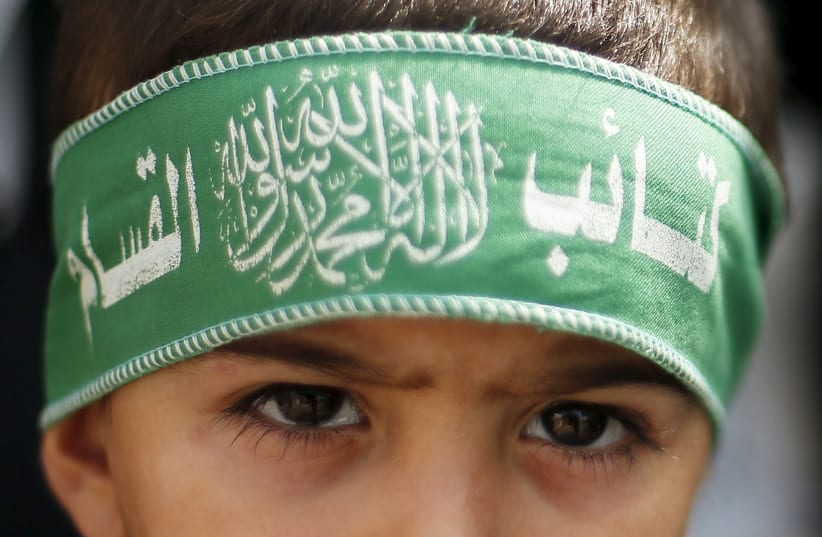Hamas has arrested several Palestinian activists who participated in web-based video conference conversations with Israelis earlier this week to discuss cooperation between young people and the situation in the Gaza Strip, particularly in light of the outbreak of the coronavirus pandemic.
Hamas accused the Palestinians of engaging in “normalization” activities with the “Israeli occupation.”
Several Palestinians in the Gaza Strip also took to social media to condemn the Palestinian-Israeli online meetings. Some claimed the video conferences with the Israelis could not have taken place without permission from Hamas.
“Why does Hamas allow such conversations to take place?” asked Nader Talal, a Hamas supporter in the Gaza Strip. “These people are traitors because they are promoting normalization with the enemy.”
Eyad al-Bazm, spokesman for the Hamas-controlled Ministry of Interior, said the activists were suspected of holding “normalization activities with the Israeli occupation via the internet.”
The suspects, he said, will be interrogated about their activities, and legal proceedings will be opened against them.
Among those arrested by Hamas is Rami Aman, a prominent political activist and journalist in the Gaza Strip.
“The Israeli occupation has not stopped using various methods to recruit Palestinians as informants in order to harm our people and its resistance and beautify its criminal image in front of the public opinion,” al-Bazm said. “Holding any activity or maintaining contact with the Israeli occupation, under any cover, is a crime punishable by the law and a betrayal of our people and their sacrifices.”
The Palestinian activists have been holding conversations through the Zoom tool and other social media platforms with people from all around the world, including Israel, about life in the Gaza Strip and the aspirations of Palestinian youth there.
They have also been talking about their fear of a major outbreak of the coronavirus in the Gaza Strip.
“We are a group of people with different ideas in the Gaza Strip,” said Palestinian activist Mohammed Murad in a recent Zoom meeting. “I would like to send a message to your [Israeli] people. We are a people who love life. The situation [in the Gaza Strip] is frustrating. We have many unemployed people and almost no job opportunities. Our health system is very weak. Our education system is also not good.”
Yuval Cohen, a young Israeli woman who participated in the video conference, said she was very excited to have the chance to chat with Palestinians in the Gaza Strip.
“What’s the [Palestinian] group doing practically to help the unemployment rate go down and to get better healthcare?” she asked.
“I want to say we are normal people like you,” Palestinian journalist Rami Aman replied. “First of all, we need to find our internal peace. We want to help the people find themselves, to follow their dreams, to follow their goals, and not to follow others’ dreams and goals. Second, we have ideas of building projects for our young people to help them get work. The Gaza Strip needs a lot of things.”
Aman and other Palestinians who participated in the conversation sarcastically pointed out that the Israeli “blockade” on the Gaza Strip has helped prevent the spread of the coronavirus pandemic in the Hamas-ruled coastal enclave.
“The Gaza Strip is different than the West Bank,” they said. “People in the West Bank can travel, and that’s why there are hundreds of Palestinians there infected with the coronavirus. In the Gaza Strip, we have a small number. But now we are afraid the virus will spread in Gaza. The situation in the Strip will explode any time, not only because of corona.”
Another Israeli, who identified himself as Zvi, also said he was excited to talk to Palestinians in Gaza. He said he was very interested to hear from the Palestinians about daily life in the coastal enclave.
A Palestinian woman replied: “I only go from my house to my office. That’s it.”
Zvi also inquired whether young Palestinians in the Strip have music gatherings.
“No, music is haram (religiously forbidden),” the unidentified woman replied. “No music, no parties.”
